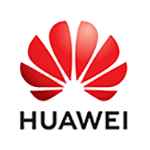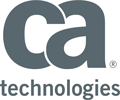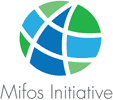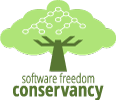TensorFlow Day Hacking Room (sponsored by IBM)
Sponsored by:

Attendance is open to any registered OSCON attendee, including those with Expo Plus passes.
Join us in the hacking room at the TensorFlow Community Day on July 17, where we will have about 10 tables of up to 10 people each working on projects or sharing technology skills and ideas. Each table will have a flip chart or whiteboard and a power strip and will be managed by one or two leaders.
If you are a hacking room leader, you will:
- Present (briefly) to the attendees of the TensorFlow Community Day what the activity is at your hacking table, the skills of the people you would like to join your table, and the goals for the day
- Lead and work with your volunteer team (up to 10 people) through the day until 4:00 pm
- Present (briefly) the achievements of your hackers in the main tent
If you are a hacking room participant, you will:
- Join a team and work with them as much as a possible through the day on activities including coding, testing, documenting, creating a demo, brainstorming, etc. You’ll have the opportunity to network with a wonderful set of people and build long-term technology relationships. Be sure to bring your laptop.
If you’re already registered for OSCON 2018, all you need to do is turn up. If you’re not registered, you can sign up for OSCON’s Expo Plus pass on the registration page, and TensorFlow Day will be open to you. Refreshments and lunch will be provided for all registered participants.
Confirmed hacking tables:
R and TensorFlow—led by Gabriela de Queroz and Augustina Ragwitz
- Get started with TensorFlow and R
- Identify an interesting dataset to be used in the demo (from a predefined collection)
- Create a end-to-end workflow, from preprocessing the data to the final model
- Demonstrate features, along with actual live demos
- Ideal participant prerequisites: A working knowledge of R and machine learning methods and algorithms
Pokedex: Identify Pokémon with Google’s AIY Vision Kit—led by Alex Kari, David Molina, and Al Kari
- Explore the basics of Google Colaboratory, a free GPU-enabled notebook environment
- Learn how to download an image dataset to train a neural network
- Discover how easy it is to retrain a TensorFlow ImageNet model with custom objects (Pokémon)
- Compile and deploy your retrained model to run on the Google AIY Vision Kit (on a Raspberry Pi)
- Use your model to accurately identify new Pokémon in real time
- Ideal participant prerequisites: A working knowledge of Python and machine learning concepts; a Google Colaboratory account
TensorFlow Build: A meeting of the TensorFlow SIG Build group (newcomers welcome)—led by Günhan Gülsoy, Yun Peng, Thomas Truong, and Ted Chang
- Bazel office hours: Expert help with mastering Bazel
- Review current issues with the TensorFlow Bazel build and collaborate on fixes
- Identify requirements for the Bazel team’s Q3/Q4 feature planning
- Set up a community custom build, using IBM Power as an example
- Ideal participant prerequisites: A working knowledge of any build process; Bazel skills (useful but not required)
Maths Kernel Library (MKL) and TensorFlow—led by Clayne Robinson and Guozhong (GZ) Zhuang
- Get started using TensorFlow with MKL support and using existing public whls and containers
- Get a closer look the issues that off-the-street users face when they are using TF+MKL out of the box
- Brainstorm how to better include community TF+MKL contributions that don’t come from Google and Intel
- Help the OS community understand how MKL optimizations have been implemented
- Ideal participant prerequisite: Access to a Linux system (remote or laptop, VM or bare-metal) with either docker or gcc installed; decent grasp of C++ if you want to get into the guts of TensorFlow + Intel® MKL-DNN
Distributed video analytics using TensorFlow models—led by Vinay Rao and Santi Swaroop Adavani
- Get started with OpenCV and TensorFlow
- Work with videos and understand the value of video data
- Understand how to use TensorFlow object detection models using OpenCV on videos
- Identify strengths and limitations of current object detection models for real-life applications
- Brainstorm how to use video analytics data for improving quality of life
- Ideal participant prerequisites: A device with Python, OpenCV, and TensorFlow installed
Kubeflow and TensorFlow—led by Michal Jastrzebski and Ankush Agarwal
- Set up up Kubernetes for machine learning
- Learn how to use Kubeflow as a base for training
- Write a TensorFlow model that can be distributed with the help of Kubeflow
- Tackle a Kaggle challenge from start to finish and run it in the cloud
- Ideal participant prerequisites: A working knowledge of TensorFlow, Kubernetes, and machine learning; a Kaggle account
TensorFlow.js demos and more—led by Sandeep Gupta, Ton Ngo, and Yi-Hong Wang
- Explore TensorFlow.js demos
- Understand TensorFlow.js code
- Identify areas for further development in TensorFlow.js
- Ideal participant prerequisites: A working knowledge of JavaScript, Node.js, and TensorFlow; A device with TensorFlow installed (useful but not required)
Call for Code with TensorFlow—led by Paul van Eck
- Learn about Call for Code
- Explore TensorFlow examples
- Formulate a submission
- Start working on the submission
- Ideal participant prerequisites: A working knowledge of TensorFlow; an IBM Cloud account
If you want to lead the Call for Code with TensorFlow table, please get in touch with Edd Wilder-James and Susan Malaika.
Comments on this page are now closed.
Sponsorship Opportunities
For exhibition and sponsorship opportunities, email oscon@oreilly.com
Partner Opportunities
For information on trade opportunities with O'Reilly conferences, email partners@oreilly.com
Contact Us
View a complete list of OSCON contacts
©2018, O'Reilly Media, Inc. • (800) 889-8969 or (707) 827-7019 • Monday-Friday 7:30am-5pm PT • All trademarks and registered trademarks appearing on oreilly.com are the property of their respective owners. • confreg@oreilly.com





























Comments
Yes, Maurice. Please log into your OSCON account to edit your package from there (see drop-down menus and main tabs above).
Can we sign up for the session we want ahead of time?